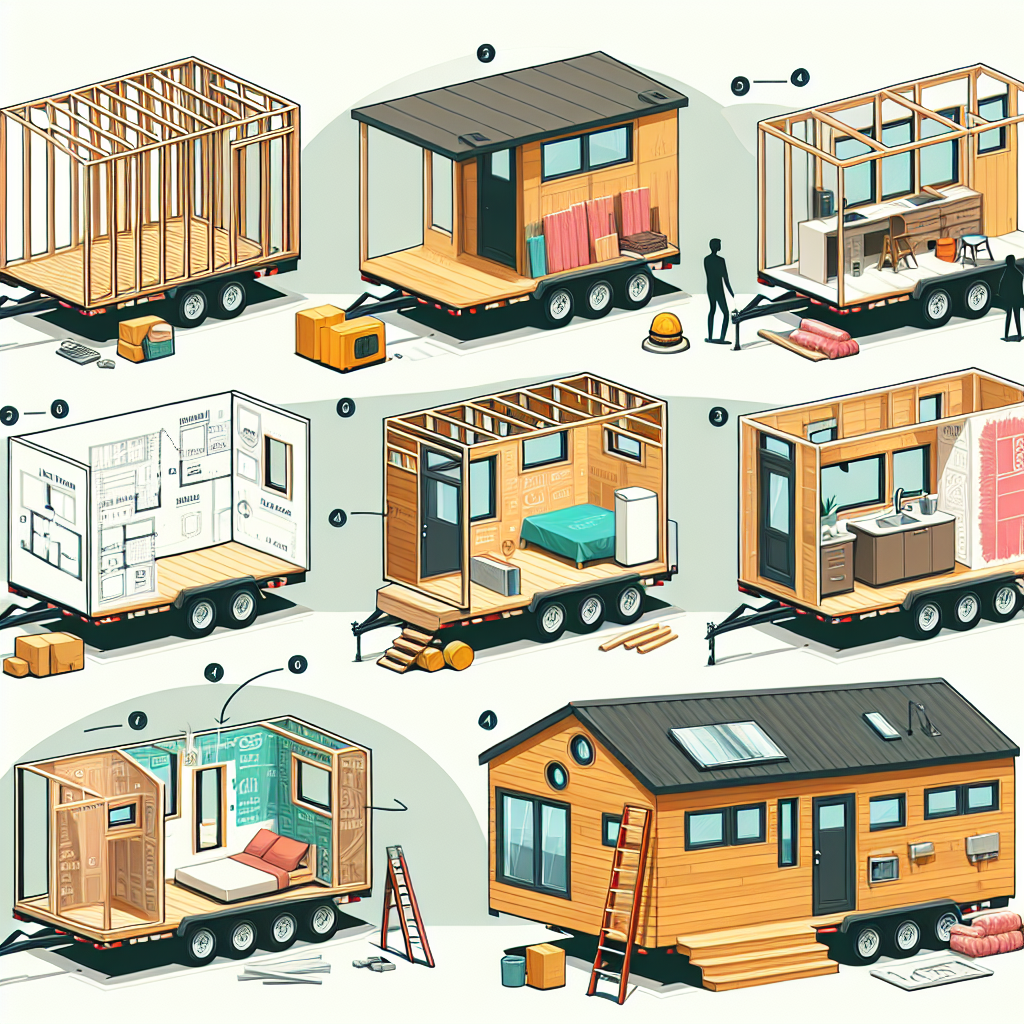
How to build a tiny house
Introduction to Tiny Living
In recent years, the concept of minimalism has gained popularity, and with it, the movement towards tiny houses has flourished. Many people are seeking a simpler lifestyle, reducing their carbon footprint, and enjoying a life free from the burdens of traditional homes. Building a tiny house allows individuals and families to embrace this lifestyle while offering the flexibility to customize their living arrangements. In this article, we will discuss essential insights and steps on how to build a tiny house.
The Benefits of a Tiny House
Before diving into the practical aspects of building a tiny house, it's essential to understand why this trend is capturing the hearts of many. Here are several benefits of tiny living:
- Affordability: The cost of building and maintaining a tiny house is significantly lower than that of a traditional home.
- Environmental impact: Tiny houses use fewer resources and have a smaller carbon footprint.
- Minimal maintenance: Less space means less cleaning and maintenance.
- Flexibility: Tiny houses can be mobile, allowing for a nomadic lifestyle.
- Simpler life: Living in a smaller space encourages decluttering and a more intentional lifestyle.
Planning Your Tiny House
When considering how to build a tiny house, the first step is thorough planning. This phase will save you time and money in the long run. Here are some factors to consider:
Define Your Goals
Your goals will dictate many aspects of your tiny house. Ask yourself:
- What is the primary purpose: full-time living, a weekend getaway, or an investment property?
- How many occupants will live there?
- Do you need a mobile tiny house, or is a stationary structure suitable?
Set a Budget
Establishing a budget is crucial. Tiny houses can range from a few thousand to upwards of $100,000. Consider the following expenses:
- Land costs
- Materials for construction
- Utilities (electricity, water, sewage)
- Permits and inspections
- Furnishings and appliances
Choose a Location
Your next consideration should be where to build your tiny house. Factors to think about include:
- Access to amenities
- Local building codes and regulations
- Climate and weather considerations
Designing Your Tiny House
With your goals, budget, and location in mind, it’s time to start designing your tiny house. Here are some design principles to consider:
Maximize Space Efficiency
In a tiny house, efficient use of space is critical. Here are some strategies to make the most out of your square footage:
- Utilize multi-functional furniture, such as a bed that converts into storage.
- Incorporate built-in shelving and cabinets.
- Design an open floor plan to create a sense of spaciousness.
Focus on Natural Light
Incorporating ample windows promotes a light and airy atmosphere, which is vital in small spaces. Consider:
- Skylights to bring in natural light from above.
- Large windows that offer views to the outside.
- Glass doors that blur the lines between indoors and outdoors.
Plan for Storage Solutions
Creative storage solutions are essential in tiny houses. Think about:
- Using the area under stairs for storage.
- Installing shelves above door frames.
- Employing hooks or racks on walls for outdoor gear or kitchen utensils.
Building Your Tiny House
Once you have your design in place, it is time to bring it to life. Here's a step-by-step guide on how to build a tiny house:
Step 1: Prepare Your Foundation
The foundation is the first step in your construction. You can choose between several types:
- Tiny house on wheels
- Concrete slab
- Wooden piers
Make sure to comply with local building codes and obtain necessary permits before proceeding.
Step 2: Frame the Structure
Begin framing your house using wood or metal studs. Ensure you build to your design specifications and consider adding insulation for energy efficiency. Follow these considerations:
- Frame walls, floors, and roof according to local building codes.
- Consider the placement of windows and doors early on.
Step 3: Install Utilities
Before closing up the walls, connect water, electrical, and sewage systems. This stage often involves:
- Hiring professionals for plumbing and electrical work.
- Installing heating and cooling systems.
Step 4: Enclose the Structure
Once utilities are in place, it’s time to install siding, insulation, and roofing. Options for siding can include:
- Wood
- Vinyl
- Metal
Step 5: Interior Finishing
Now comes the fun part—finishing the interior! Consider touches like:
- Painting walls and ceilings.
- Installing flooring.
- Adding cabinetry and fixtures in kitchens and bathrooms.
Step 6: Furnish and Personalize
Finally, furnish your tiny house according to your lifestyle. This is a great opportunity to reflect your personal style. Think about:
- Choosing light furniture to keep the space feeling open.
- Using bright colors to enhance the sense of space.
- Incorporating plants to bring life into your home.
Living in Your Tiny House
Congratulations on successfully building your tiny house! Now it’s time to adapt to your new lifestyle:
Adjusting to Minimalism
Living in a tiny house means embracing minimalism to its fullest. To thrive, consider the following:
- Regularly declutter to keep your living space manageable.
- Embrace buying only what you need.
- Focus on experiences rather than belongings.
Community and Support
Many tiny house enthusiasts find community and support through online forums and local meetups. Joining such a community can provide you with insights, inspiration, and the opportunity to share your journey.
Conclusion
The tiny house movement is more than just a trend; it is a means to re-evaluate what we truly need for happiness and satisfaction in our lives. With a clear plan, a thoughtful design, and determination, building a tiny house can be a rewarding journey. So if you’ve been pondering about how to build a tiny house, take the plunge—you might discover a simpler, happier way to live.
By Guest, Published on September 20th, 2024